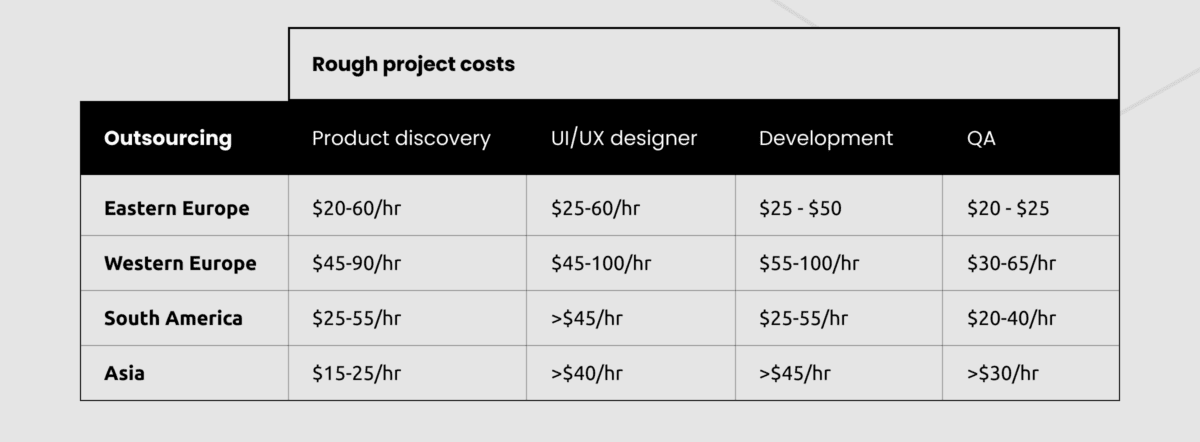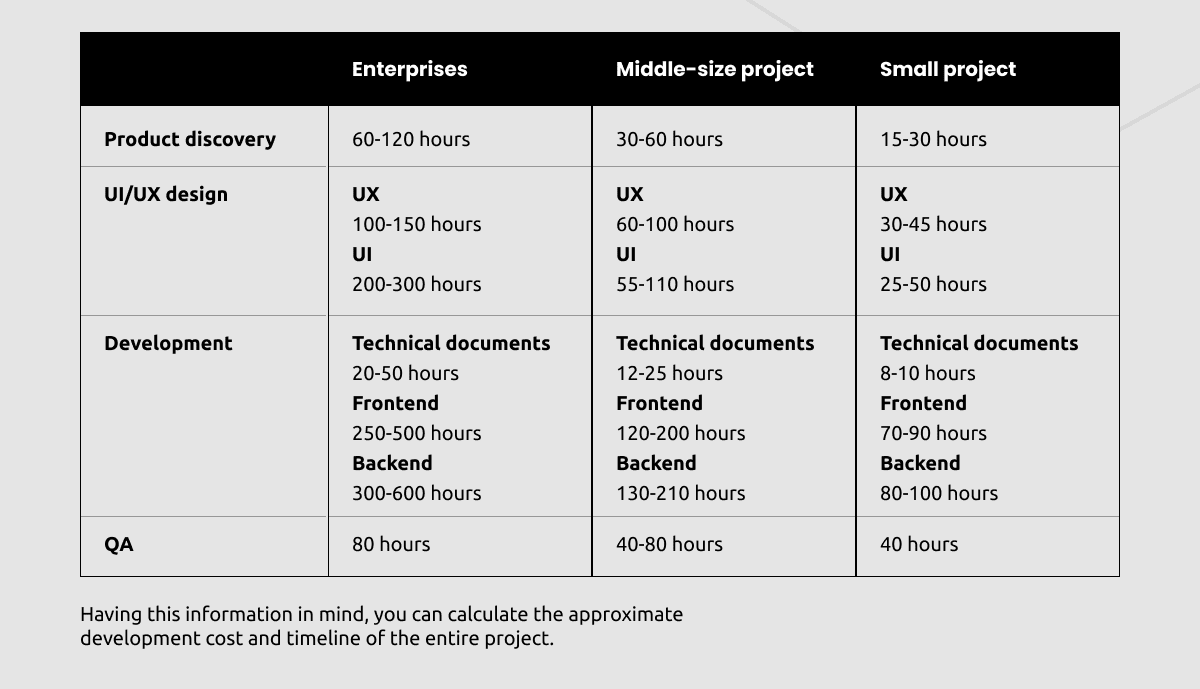Content
As a business owner, you must take care of many time-consuming and complex business tasks, including finances. The accounting process is imperative to your business’s profitability and productivity. Thanks to financial management, large and small businesses can achieve their financial targets faster.
Smart automation of financial processes allows companies to track financial performance, analyze expenditures and incomes, and quickly identify accounting gaps. On top of that, companies can easily integrate custom accounting software into any business environment to meet specific business requirements.
Based on our experience in custom accounting software development, we’ll describe how to do it right and minimize potential mistakes. By navigating the article’s sections, you’ll find out:
- What is custom accounting software?
- Key differences between custom-made accounting software and off-the-shelf solutions
- Types and top 10 features of accounting software
- Reasons why you need to invest in accounting software development
- A step-by-step guide to an efficient process for creating custom accounting software
- Expert advice to consider before starting development
- Costs to build your own accounting software
What is custom accounting software?
Every business has a different size and problem complexity that traditional accounting systems can not handle appropriately. Custom accounting software is a program that provides tailored functionality to satisfy business-specific accounting needs.
For example, some companies require tax management; others may need solutions for asset and inventory management, invoice processing, payroll management, or financial planning and analysis.
For each case, you cannot customize a traditional one-size-fits-all system to cover all financial needs simultaneously. Even though the customized solutions require a significant upfront investment, these costs will pay off in the long run.
Custom-made accounting software vs off-the-shelf
Planning the steps to understand how to build accounting software should start with choosing a development option. For more specific cases, companies prefer to develop customized accounting software to meet the direct needs of the company. These systems are easy-to-use and scale.
Off-the-shelf accounting solutions provide a standard feature set tailored to handle certain tasks. These systems have limitations and can offer a range of features you don’t need.
We’ve prepared a comparison table to help you understand the main differences between custom accounting software and off-the-shelf solutions based on important validation criteria.
| Criterion | Custom-made accounting software | Off-the-shelf solutions and services |
| Functionality | Exclusive feature list to serve your specific needs | Lack of flexibility and limited list of features |
| Compliance with business needs | Fully comply with your business needs, goals, and workflows | Rarely customized to meet specific business needs |
| Cost | High initial investment pays off in the long run | Lower cost solution, but there is a risk of paying for unnecessary software features |
| Development time | Long development process, but the quick payback in the form of easy financial management, increased productivity, and business efficiency | Fast implementation due to vendor’s help |
| Support and maintenance | Can be provided by the development team | Regular and often unnecessary updates |
| Data security | The system is well protected, and the software is rigorously tested during development to eliminate as many bugs as possible | Vulnerable to cyber-attacks and software bugs |
| Scalability | Easy to scale and upgrade the platform | Upgrades are not provided and cost extra money |
As you can see, custom accounting software wins in most aspects that you should consider before integrating new financial management solutions into your business activities. In any case, you can consult with our software team to analyze your existing accounting processes and get an optimal solution to solve your pain points.
How to Build Custom Accounting Software: Types
If you are looking for the accounting software that will work best for your business, then you should consider all types of accounting software that you can choose from. Let’s demonstrate each of them.
Spreadsheets
For small businesses that need simple task management, Microsoft Excel or Google Spreadsheets is enough to handle your accounting needs. Accountants use these tables to organize, sort, and calculate data, create lists, input numbers, figures, etc. Spreadsheets are easy to navigate and don’t require special knowledge. However, this option is unsuitable for medium and large-sized businesses with special needs for advanced features and calculating complex financial transactions.
Commercial software
This type of accounting software is the optimal solution to meet the needs of middle-sized companies. Specialized commercial software provides a set of common features that allow accountants to perform more complex tasks. Using this software, accountants can prepare tax reports, manage the auditing process, monitor cash flow, and handle invoicing, among other tasks.
Enterprise-level accounting software
Accounting software for enterprises is designed to handle a massive amount of information, process it, and organize the workflow more efficiently. Often, custom accounting software comes as a customized ERP solution with planning features, integration of financial systems, workflow optimization, and AI-based predictive analytics. This software delivers a seamless experience, handles complex finance management, and controls the overall corporate ecosystem.
Reasons why you need to build your own custom accounting software


Reasons why you need to create an accounting software
You can benefit in any case by choosing custom accounting software development. By optimizing financial transactions and your income, with this software, your accounting department makes it easy to analyze financial data and determine how well a business is performing at any time.
Provide personalization
There is no one-size-fits-all accounting solution that can be adapted to all types of businesses. By offering personalized features, any software solution has a competitive advantage over other ready-made accounting options. One real-life example of personalization features is the integration of custom accounting software with CRM to populate invoices with accurate customer details automatically, price, payment terms, etc.
Enhance security
When dealing with financial data, accounting software security is a major concern. Your accounting system deals with money, payroll, taxes, customer data, etc. That’s why compromising this data can cost your business a fortune or lead to general business failures. When the software is developed right, custom accounting software is well protected, and information is stored securely. Later in this article, we’ll share best practices for securing your accounting platform.
Save time and costs
Unified accounting software helps your company speed up workflow efficiency, process financial data faster, and eliminate extra costs for handling document flow. All financial activities can be processed automatically, saving your accountants’ time and efforts.
Increase efficiency
A large amount of financial data, including numbers, figures, and data – are essential to operate fast and error-free. You can double the efficiency of internal accounting by automating processes so that tasks are completed more accurately and faster.
Prevent human errors
Human errors are natural when it comes to performing routine tasks. However, when dealing with finances and accounting, such mistakes may result in error-related company losses. You can no longer worry about such errors by incorporating a custom accounting system into your organization. The calculations and process operations are performed strictly under software algorithms, and the error probability is much lower.
Speed up data processing
Automated data processing allows companies to receive the necessary financial information quickly and at any time. Any authorized users can quickly get the information they need to achieve their goals without delaying other vital tasks.
Build your own custom accounting software with RewiSoft (Our real cases)
As we previously mentioned, there are a lot of possible accounting software integrations to meet the needs of businesses across numerous industries. For the recent real estate project NWCC, we have elaborated on the platform’s advanced functionality to help efficiently manage construction funds and loans.


NWCC
NWCC is a construction finance management solution that protects lenders’ real estate portfolios from the design process to completion.
Our main challenge was making the platform more inclusive and personalized, excluding human error risks and providing scaling opportunities. For these reasons, we decided to start working on creating our customer’s accounting solution to integrate into the platform and help users solve their main problems.
To help lenders, borrowers and constructors quickly access accurate financial information about construction projects. We have come up with the following features:
- Easy onboarding to help users learn to use and navigate a platform
- Budget tracking options for loans
- Inspection history section where lenders can view financial data according to project progress
- Automated spending calculations
- Accounting analytics and reporting


Lender Dashboard
As a result, advanced accounting features helped the customer speed up information sharing, reduce human error, automate and streamline routine processes, and easily track funds and budgets anytime.
The next recent case where we helped our customer create an accounting software design and solution is EzTaxPrep. This solution help organizations and individual entrepreneurs simplify the process of tax calculation.


EzTaxPrep
Looking for ways to understand how to build accounting software, our main challenge was to make the platform intuitive and attractive and implement fast and reliable data processing. So, we have come up with the following features:
- Options for secure document sharing and hosting
- Tax preparation dashboard
- Advanced user settings
- Customer messaging options to clarify missing tax information
- Customer dashboard with filtering options to view documents, track payments, check statuses, and view completed orders


EzTaxPrep features
As a result, this web-based platform assists small and medium-sized businesses in easy tax preparation and payroll processing while helping customers with tax return preparation needs.
Top 10 features of custom accounting software development
If you’re wondering how to build accounting software, we’ve compiled the top 10 feature list to help you choose the functionality for your specific financial accounting needs.
Payroll management
Payroll management made it easy to monitor and manage your employees’ salaries. Accounting software developers can create custom formulas to calculate employees’ salaries, bonuses, commissions, overtime, taxes, etc. With this feature, accountants can easily track payroll amounts and create employee payment schedules for a specific time period.
Reports
Accounting software allows generating reports on the business’s financial performance. Automated financial reporting helps accountants create (monthly, quarterly, annual, etc.) reports and process them faster. Plus, you can create customizable report templates such as balance sheets, tax summaries, profit and loss statements, customer statements, and more to meet various accounting needs.
Invoice processing
This feature allows accountants to send, receive, track and print invoices through the app. Dealing with invoices, accountants can track the invoice status (send, received, paid, overdue) in real-time. You can create custom invoice templates, process them in a specific order, and set reminders for regular invoices.
Tax calculator
The tax calculator is important to avoid mistakes and overdue tax payments. By calculating different types of taxes, companies can save time while ensuring accurate tax calculations. Based on user-defined parameters and tax rates by region, you can automate the calculation of VAT for each tax period, sales tax, income tax, and other taxes.
Electronic payments
Your custom accounting system can allow electronic payments directly from the app. By integrating bank accounts and payment systems, your customers can pay from their bank accounts. This in-built payment feature will also help your company to keep a record of payment history and receipts.
Integrations with other systems
To simplify the accountant’s workflow, your accounting software can be integrated with other systems: CRM, e-commerce platform, HR management software, bank accounts, asset management software, etc. Keep in mind that you can benefit from making your platform compatible with other systems to enable faster bank reconciliation, accurate asset calculation, etc.
Linking bank accounts
When linking bank accounts to the accounting system, users can deal with funds quickly and efficiently without delays and process interruptions. It can also help set up electronic deposits, manage checks or monitor credit.
Expense tracking
Expense control is one of the most valuable features that help organizations of different sizes calculate expenses regularly. With accounting software, all receipts can be put in order, giving clarity to the organization’s expenses. This feature is an excellent way to get an idea about smart resource optimization.
Credit monitoring
The credit monitoring option makes it easier to control customer credit limits and automatically send reminders. Organizations dealing with customer debt can use this software to monitor any activity on consumer credit reports and alert them to potential problems.
Data visualization
Accounting data is often presented in the form of various figures. Visualizing this data as a graph or chart of any type will make complex information easier to read and understand.
How to build custom accounting software in 8 steps?


How to build accounting software in 8 steps?
To develop and integrate accounting software into your business, you must first gather the required software professionals and map out a software development roadmap. To help you build a strong development team, learn valuable insights on how to set up this process, manage the team, and what mistakes to avoid in our recent guide on how to hire developers without mistakes. To get started with the development process, let’s look at the following steps.
Step 1. Analyze your pain points and bottlenecks
The first step in developing accounting software is to think over your core project idea, understand end-user concerns your software is going to solve and consider the challenges your business is currently struggling with.
Based on this analysis, you’ll be able to share a clear product vision with your development team. After this, your team will be able to convert your idea into an actionable project development plan consisting of the specifics of future system functionality and accounting software design.
Step 2. Specify your business needs and goals
Once you’ve identified the problems your software will solve, you can continue exploring your core business needs, priorities, and goals. Prior to accounting software development, your project team should also analyze your direct market competitors, define what features are viable to your accounting software, and determine the functions to help address users’ needs.
This step is essential to help you understand how you will monetize your idea and set up the dev process to achieve your business goals quickly and correctly.
Step 3. Hire software specialists
Depending on your project needs and budget, you may need professional help to build your own accounting software fitting your budget and expected time-to-market. Considering all the accounting software complexity, security requirements, and integrations with other finance systems, the accounting software development process is not trivial.
To ensure your accounting software will work for your business right, we suggest:
- Explore the leading outsourcing software services providers from
- Follow the valid criteria to help you choose the right vendor
- Form a list of potential vendors
- Schedule a business call to discuss your project details
Following these steps, you can either find a specific specialist for your in-house team or assemble a fully-staffed development team to fit your project needs.
Step 4. Do business analysis with your team
This step involves close cooperation with a professional team of accounting software specialists. During business analysis, your team will validate the overall market idea and formalize technical requirements for the accounting solution.
Product ideation is paramount before getting down to coding. You should sketch a model of your future product to analyze the benefits of your custom accounting software and decide on a unique business value. By summarizing all the product research results, your team will assess the solution’s strengths and weaknesses, business opportunities, and risks. This will be a start to discussing the following product roadmap.
Step 5. Plan your accounting software development roadmap
During this step, you can start creating an accounting software development plan based on the collected product and market research information. The key deliverable of this step is a document that represents all the tech aspects of your future product, feature list, and tech stack. Detailed product and software requirements specifications (SRS) will guide your development team through the development process, ensuring the requirements for the product are met correspondingly.
Step 6. Work on the UI/UX design
Accounting software design is how your accounting software interfaces will look and feel to end users. Working on wireframes and UX prototypes, the design team will infuse your app with various visual elements (graphics, dropdowns, icons, typography) to create an intuitive accounting software design and logical user flows. The main task of RewiSoft’s design team is to design your app interfaces combining the best design practices and unique brand style. All at once will make your accounting software user-friendly and easy to use.
Step 7. Develop and test
The next core step is a time-consuming and complex process aimed at implementing the functionality and accounting software design into a functioning version. To develop competitive and high-quality software, the development and testing often go hand in hand. When the coding is in progress, testers can test each feature of the software as soon as they are ready. This approach allows the development team to troubleshoot software bugs before the product goes into production.
Step 8. Deploy and maintain your accounting software
Finally, your accounting solution can be integrated into your business processes and perform its core tasks. However, suppose you want your accounting platform to stay relevant while meeting the evolving market requirements. In that case, you’ll need to maintain the system functionality, regularly monitor your platform, update it, and fix bugs. That’s why you’ll need a maintenance team to help you review your product and deal with any arising issues.
Custom accounting software development tips from RewiSoft
To understand how to build accounting software and prepare for the development process, we’ve put together helpful tips to help you streamline and speed up this process. Below you can find the practical advice for building accounting software based on RewiSoft’s experience.
Plan MVP development
To test the demand for your accounting solution with minimal investment, you can start by building an MVP version of your product. The scope of MVP features can vary depending on your business needs, budget, and time to market.
However, you can consider a basic list of MVP features to test your solution with your target audience and get honest feedback. If your idea is potentially successful, you can move on to upgrading your product’s technical and visual components as well as fixing issues spotted by your end users.
If you’re looking for an easy-to-follow guide to creating a minimum viable product, check out our blog post for helpful information.
Focus on analytics
Accounting data analytics allows businesses to acquire valuable insights from their financial data. Identifying patterns and metrics makes it easier to help guide strategic decisions and draw meaningful conclusions. Thus, data analytics in accounting helps companies identify risks, improve internal processes, and monitor overall business performance while understanding what needs to be improved faster.
For example, accounting data analytics can help with tax considerations related to investment scenarios or help with cash flow analysis. By focusing on the analytics of your financial data, you can not only manage payroll or process invoices but also understand how to cut company losses and invest profits wisely.
Consider security measures
As with fintech app development, security should be a top priority in accounting software development. Dealing with sensitive financial data entails specific responsibilities that your accounting solution must adhere to. Otherwise, the loss of financial data can cause significant damage to your business and lead to irreversible consequences.
To prevent this scenario, we’ve prepared a list of standard practices to secure your accounting solution:
- Set up a secure network firewall and malware protection first
- Ensure end-to-end financial data encryption when communicating with third-party services or other devices
- Apply two-factor authentication to ensure protection against hacking
- Build a robust backend infrastructure and reliable software logic to fill possible gaps in your system
- Consider implementing multilevel access to limit the number of users that can interact with your accounting solution
Collaborating with a team of accounting software professionals will help your business incorporate the best-fit security measures into your application infrastructure.
Ensure proper integration with third-party solutions
As we mentioned, accounting software can be easily integrated with different systems and third-party solutions. For example, online banking, inventory management software, CRM systems, etc. That’s why similar integrations should provide your accounting solution with a stable and reliable connection and access to various features of these systems. In this way, you can ensure the efficiency and reliable operation of your accounting software system.
How much does it cost to build your own custom accounting software?
Once you’ve determined what type of software you need and what features will help meet your current financial needs, it’s time to consider how much custom accounting software development will cost. Take into account there are certain factors that can raise or lower the final accounting app project cost:
- Business model
- Features package
- Expected time to market
- Development approach
- Team location
- Team size
- Team expertise
- Hiring model
- Number of modules
Below you can see a range of accounting software development costs filtered by your team location and project stage.


In the next picture, you can also see RewiSoft’s timeline calculations based on project size and stage.


With all the above information in mind, there may be situations where your business needs to hire specific professionals. Working on the outstaff model can help you quickly find the required talents to perform a limited scope of project tasks.
In both cases, RewiSoft provides end-to-end software development services with a fully staffed team or can help you expand your in-house team.
…to build your own accounting software with RewiSoft!
Custom Accounting Software Development: Conclusion
Custom accounting software development is a great way to handle your business’s financial activities. Custom accounting systems allow you to automate the accounting workflow, reduce workload and optimize financial efficiency.
However, developing your custom accounting solution to fit the specific requirements of your business is quite a challenging task that requires thorough preparation and assembling an experienced team. We hope our recommendations will help you find practical tips for getting started right.
In the meantime, the RewiSoft team is ready to help you come up with the scope of tasks and scale of functionality to develop a custom accounting solution. We have broad expertise in developing solutions for the fintech industry while providing our customers with cost-effective and time-saving development services.
Contact us to outline the steps for further development of your accounting software!







